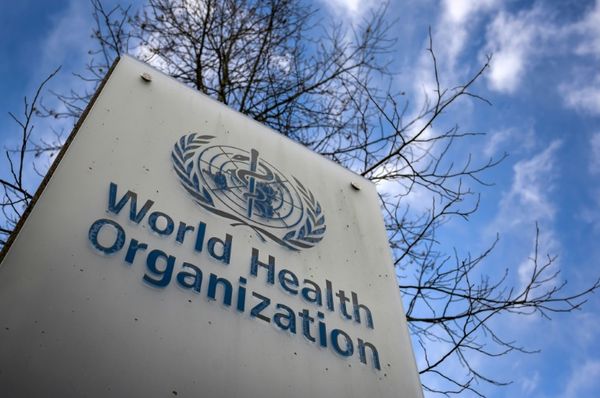
Nutrition is often discussed regarding overall health, but its role in skin healing, particularly scar formation, is just as vital. Whether recovering from surgery, dealing with acne scars, or managing wounds from an injury, what we eat can significantly influence the healing process and the appearance of scars.
Certain nutrients have been shown to aid tissue repair, reduce inflammation, and enhance collagen production, which is critical in effective wound healing and scar minimisation. Moreover, even in scar revision surgery, where medical intervention is necessary to improve the appearance of scars, nutrition remains an essential ally in ensuring optimal healing and long-lasting results.
This article explores the nutrients that can be pivotal in scar healing and offers practical tips for incorporating these foods into your daily diet.
Understanding Scar Formation and Healing
Scars form as part of the body’s natural healing response to an injury. When the skin is wounded, it goes through a complex tissue repair process, resulting in scar formation. This process occurs in three main phases: inflammation, tissue formation, and remodelling. Each stage has distinct nutritional needs that can influence how effectively the skin heals and how visible the resulting scar becomes.
- Inflammation Phase: This is the body’s initial response to injury. During this phase, the body sends immune cells to the wound site to remove debris and fight potential infections. Managing inflammation is critical at this stage, as excessive or prolonged inflammation can worsen scar formation.
- Tissue Formation Phase: The second phase involves the production of new tissue, including collagen, to replace damaged skin. Collagen is essential for wound strength and elasticity, but if not produced properly, it can lead to thick, raised scars.
- Remodelling Phase: In this final stage, the new tissue is reorganised and strengthened over several months. How well this phase progresses determines whether the scar’s appearance remains prominent or fades into a smoother, less noticeable mark.
Nutrition influences these phases, supporting collagen synthesis, cell regeneration, and inflammation control. Let’s examine the key nutrients involved in scar healing and how they work.
Key Nutrients for Scar Healing
Vitamin C
Vitamin C is indispensable for collagen production, a protein that gives the skin structure and strength. Without enough Vitamin C, collagen synthesis slows down, leading to weaker scar tissue that may be more noticeable. Vitamin C is a potent antioxidant that protects cells from damage by free radicals, which can interfere with healing.
Incorporating Vitamin C-rich foods into your diet is simple and effective. Citrus fruits like oranges, lemons, and grapefruits are well-known sources. However, you can also find Vitamin C in strawberries, bell peppers, broccoli, and leafy greens like kale and spinach.
Zinc
Zinc plays a crucial role in skin health, primarily through its influence on cell production and immune function. It is essential during the inflammation phase of wound healing, helping to regulate the immune response and reducing the risk of infection. Zinc also aids in collagen formation and stabilises the structure of proteins in the skin, contributing to smoother scar tissue.
Foods rich in zinc include meat (especially red meat), shellfish, seeds (such as pumpkin and sesame seeds), nuts, and legumes. Ensuring an adequate zinc intake is particularly important if you are healing from a significant wound or undergoing scar revision surgery.
Protein
Protein is vital for tissue repair and the regeneration of skin cells. During wound healing, the body requires extra protein to build new cells and produce collagen, making it an essential nutrient for anyone recovering from an injury. Wounds may heal more slowly without sufficient protein, and scars could be more pronounced.
Lean meats like chicken and turkey, eggs, dairy products, and plant-based sources like beans and lentils are excellent options for boosting your protein intake. Incorporating these into meals ensures your body has the building blocks for effective healing.
Vitamin E
Vitamin E is widely recognised for its skin benefits, particularly its antioxidant properties. It helps protect the skin from oxidative stress, which can worsen scarring. Some studies suggest that Vitamin E may also prevent scar tissue from becoming overly thick, although the evidence is mixed. Vitamin E remains a valuable nutrient in promoting healthy skin, whether applied topically or ingested through food.
Almonds, sunflower seeds, avocados, and spinach are good sources of vitamin E. These foods can support skin health and contribute to a smoother healing process.
Omega-3 Fatty Acids
Omega-3 fatty acids are renowned for their anti-inflammatory properties, particularly beneficial during the initial inflammation phase of wound healing. By helping to control excessive inflammation, Omega-3s can reduce the risk of developing raised or hypertrophic scars. Additionally, these fatty acids support skin hydration and elasticity, aiding the remodelling phase.
Incorporate Omega-3s into your diet through fatty fish like salmon, mackerel, and sardines. Flaxseeds, chia seeds, and walnuts are excellent sources of plant-based options.
Tips for Incorporating Healing Foods into Your Diet
Knowing which nutrients are beneficial is one thing, but how do you incorporate them into your daily meals? Here are some practical tips:
- Start Your Day Right: Begin with a breakfast smoothie packed with spinach, berries, and a scoop of protein powder. Add a tablespoon of flaxseeds for an Omega-3 boost and a splash of orange juice for extra Vitamin C.
- Nutritious Snacks: Keep zinc—and Vitamin E-rich snacks like almonds and seeds on hand. These are easy to add to salads or yoghurt or enjoy on their own.
- Balanced Meals: Include lean proteins like grilled chicken or tofu in your lunches and dinners. Pair them with steamed broccoli or a side salad with mixed greens, bell peppers, and a citrus-based dressing for a nutrient-rich meal.
- Consider Supplements Carefully: While getting nutrients from food is always preferable, supplements can be helpful, especially if you have dietary restrictions. However, it’s important to consult with a healthcare professional before starting any supplements, particularly if you are preparing for surgery or undergoing scar revision surgery.
Common Myths and Misconceptions
Many myths surround nutrition and scar healing, which can lead to unrealistic expectations. One common misconception is that certain foods or vitamins alone can eliminate scars. While nutrients like Vitamin C and E are crucial for healing, they are not miracle workers. Scar healing is a complex process that involves genetics, the extent of the injury, and overall skin care.
Another myth is that avoiding specific foods can prevent scars. While it’s true that a healthy diet supports better healing, no single food or nutrient can guarantee scar-free recovery. Nutrition is a valuable component of scar management. Still, it should be considered part of a broader, holistic approach that may include skincare routines, medical treatments, and, in some cases, surgery.
Conclusion
Nutrition is fundamental in how well your skin heals and your scars become visible. You can support your body's natural healing process by focusing on a diet rich in essential nutrients like Vitamin C, zinc, protein, Vitamin E, and Omega-3 fatty acids. Whether recovering from an injury, dealing with acne scars, or preparing for scar revision surgery, paying attention to your nutritional intake is critical to achieving smoother, healthier skin.
Incorporating these dietary strategies into your everyday routine promotes scar healing and enhances overall skin health. Remember, achieving the best results often requires a combination of good nutrition, proper skin care, and, when needed, professional medical advice. A holistic approach will give you the best chance of minimising scars and maintaining radiant skin.







